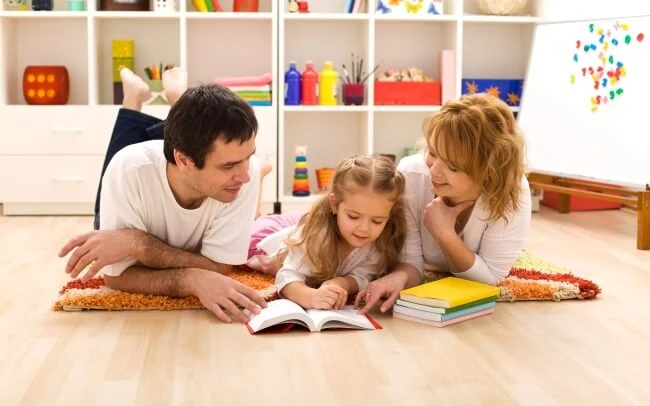5 Best Parenting Styles Boosting Education Success
To boost your child’s education success, consider the authoritative parenting style. This approach, backed by research, promotes positive discipline, clear boundaries, and warmth to foster a supportive environment for learning. Avoid helicopter parenting, as excessive involvement can hinder autonomy. Uninvolved parenting, permissive parenting, and tiger parenting may lead to negative outcomes such as low self-esteem and academic struggles. The right balance of guidance and support sets the stage for educational achievements. Finding the best fit for your family is key.
Key Takeaways
- Authoritative parenting style correlates with higher academic achievement and positive discipline.
- Setting healthy boundaries and clear expectations enhances educational success.
- Nurturing a warm and supportive environment fosters academic growth.
- Emphasizing structured environments and high expectations boosts academic performance.
- Positive reinforcement and a balance of freedom and discipline lead to educational success.
Authoritative Parenting Style

Research consistently shows that the authoritative parenting style is associated with higher academic achievement and overall educational success in children. This parenting approach emphasizes positive discipline and setting healthy boundaries for your child. By nurturing a warm and supportive environment while also maintaining clear rules and expectations, children raised with authoritative parenting tend to excel academically.
Positive discipline techniques used in authoritative parenting, such as reasoning and explanation rather than harsh punishment, help children understand the consequences of their actions. This fosters a sense of responsibility and accountability, which are essential traits for success in academics and beyond.
Additionally, establishing healthy boundaries allows children to develop self-discipline and independence. When parents provide guidance and structure without being overly controlling, children learn to make good decisions on their own. This autonomy and critical thinking skills acquired through authoritative parenting contribute significantly to educational achievements.
Helicopter Parenting Style

An overprotective and excessively involved parenting style, known as helicopter parenting, often hinders children’s development of autonomy and self-reliance. This style is characterized by overbearing involvement and excessive control, where parents constantly hover over their children, monitoring their every move and decision.
While the intention behind helicopter parenting is usually to guarantee the child’s safety and success, research shows that it can have a negative impact on the child’s development. Children raised under helicopter parenting tend to lack independence and struggle with decision-making skills. Constant parental intervention can prevent them from learning how to solve problems on their own and handle challenges effectively. This lack of autonomy can hinder their growth into self-sufficient individuals.
Additionally, children raised in this environment may experience anxiety and low self-esteem due to the constant pressure and scrutiny. It is essential for parents practicing helicopter parenting to find a balance between being involved and allowing their children the freedom to learn from their own experiences.
Encouraging independence and fostering resilience in children can help mitigate the negative effects of this parenting style.
Uninvolved Parenting Style

When parents exhibit an uninvolved parenting style, they demonstrate a lack of engagement and emotional involvement in their children’s lives, potentially impacting their overall development and well-being. This parenting approach can have significant negative effects on children.
The impact on children of uninvolved parenting can be profound. Without the necessary emotional support and guidance from their parents, children may struggle with low self-esteem, lack of motivation, and feelings of neglect. Research indicates that children raised in uninvolved households are more likely to have academic difficulties, behavioral issues, and poor social skills compared to those with involved parents.
Furthermore, the absence of parental involvement can lead to increased risk-taking behaviors, substance abuse, and mental health challenges in children. The lack of a strong parental presence may leave children feeling isolated, unloved, and insecure, affecting their overall well-being and future success.
It’s important for parents to recognize the significance of active engagement and emotional connection in fostering a healthy and supportive environment for their children.
Permissive Parenting Style

Parents who adopt a permissive parenting style tend to have a lenient approach towards setting rules and boundaries for their children, often prioritizing their freedom and autonomy over discipline and structure. This style is characterized by a high level of responsiveness but low demands on children. Permissive parents often use positive reinforcement to encourage good behavior rather than strict rules or consequences for misbehavior.
While this approach can foster a warm and nurturing relationship between parent and child, research suggests that children raised under permissive parenting may struggle academically due to the lack of clear boundaries and expectations.
Setting boundaries is essential for children’s development, as it helps them understand limits and expectations in various situations. Without clear guidelines, children may have difficulty overcoming challenges and developing essential life skills.
While positive reinforcement is beneficial for boosting self-esteem and confidence, a balance between freedom and structure is vital for promoting academic success and overall well-being in children raised under a permissive parenting style.
Tiger Parenting Style

The Tiger Parenting style is characterized by strict discipline, high expectations, and an emphasis on academic achievement. Originating from Asian influence, this parenting approach places significant academic pressure on children to excel in their studies.
Tiger Parents tend to have unwavering family expectations, believing that high achievement is essential for future success. This style is often associated with a structured environment where rules are strictly enforced, and children are pushed to aim for excellence in academics and extracurricular activities.
Research suggests that while Tiger Parenting can lead to high academic performance, it may also have negative effects on a child’s mental health and emotional well-being. The intense pressure to meet exceedingly high standards can result in feelings of anxiety, low self-esteem, and a lack of autonomy.
It’s essential for parents utilizing this style to balance high expectations with emotional support and understanding to foster a healthy parent-child relationship and promote overall well-rounded development.
Frequently Asked Questions
How Can Parents Balance Authority and Warmth in Authoritative Parenting?
To balance authority and warmth in authoritative parenting, remember that setting clear expectations while showing love and support fosters emotional regulation and boosts academic success. Consistent discipline combined with empathy positively influences educational outcomes and overall development.
What Are the Risks of Over-Involvement in Helicopter Parenting?
When parents hover excessively, they risk hindering your growth by impeding boundary setting and healthy independence. Encouraging self-reliance fosters positive development. Balancing involvement with allowing space for autonomy is essential for your well-being.
Why Do Uninvolved Parents Choose to Disconnect From Their Children?
You might find that uninvolved parents choose to disconnect due to a lack of time or interest. Balancing work, personal obligations, or other challenges can make it difficult to engage fully in your child’s education.
What Are the Consequences of Too Much Leniency in Permissive Parenting?
When parents are excessively lenient, negative impacts on academic performance and behavioral issues can arise. Without clear boundaries, children may struggle to excel in school and exhibit disruptive behaviors that hinder their development.
How Can Parents Avoid the Negative Effects of Extreme Pressure in Tiger Parenting?
To avoid the negative effects of extreme pressure in tiger parenting, focus on fostering healthy boundaries and utilizing positive reinforcement. Encourage a balanced approach that values effort over perfection, nurturing resilience and intrinsic motivation.
Conclusion
To sum up, selecting the right parenting style can significantly impact a child’s educational success. By incorporating elements of authoritative parenting, providing support without hovering like a helicopter parent, staying engaged without being overbearing like a tiger parent, and avoiding uninvolved or permissive styles, parents can create a nurturing environment that fosters academic achievement.
Remember, every child is unique, so it’s important to find a balance that works best for your family.

Hey there! 👋 I’m a proud mom and passionate writer, sharing my parenting journey. 📝 Join me as I navigate the ups and downs of motherhood, offering tips, advice, and a sprinkle of humor along the way. 🌟







